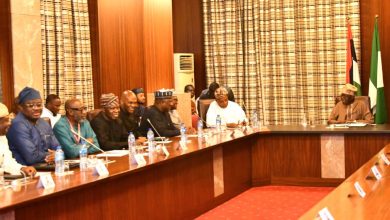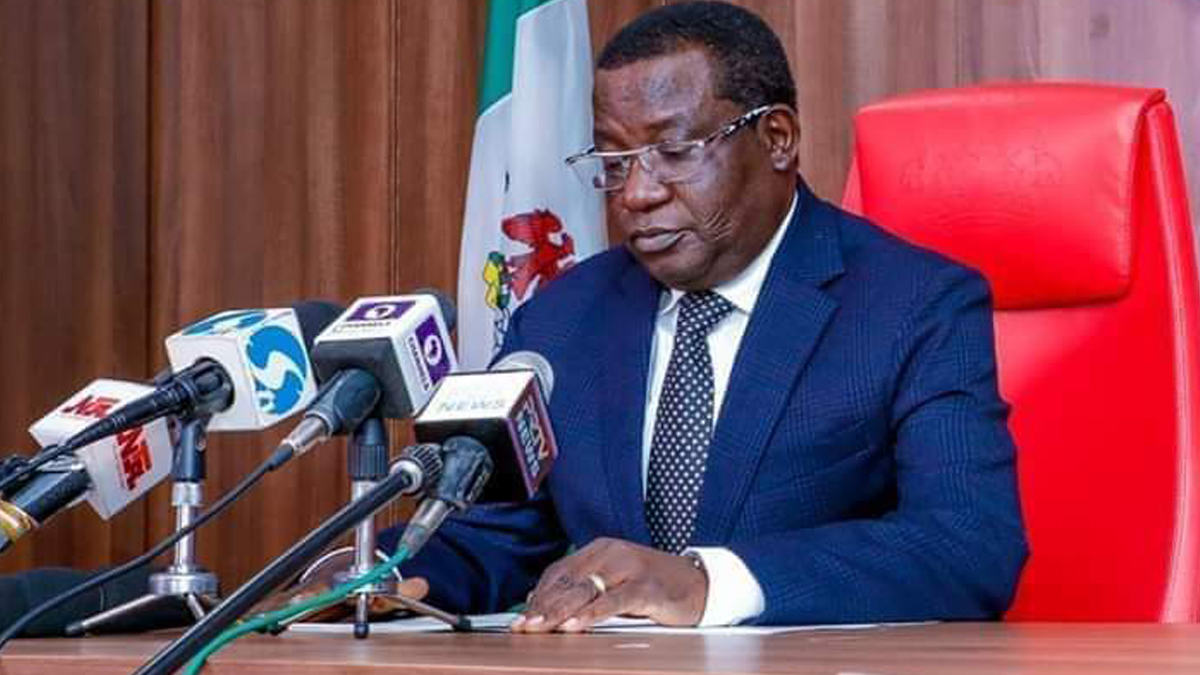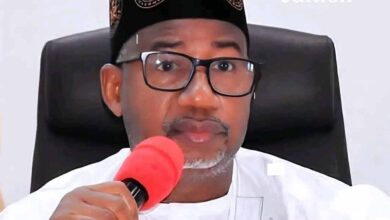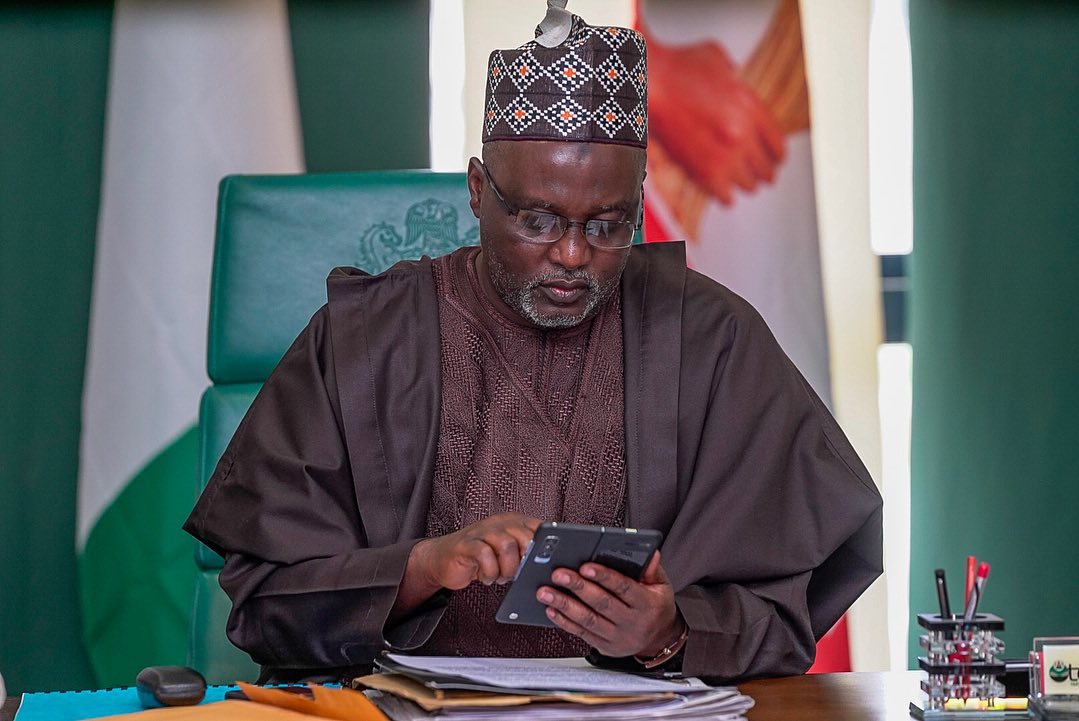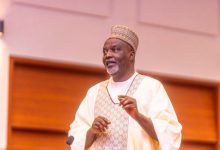Just In: Atiku Criticize Tinubu’s Economic And Forex Policies, offers alternative solution.
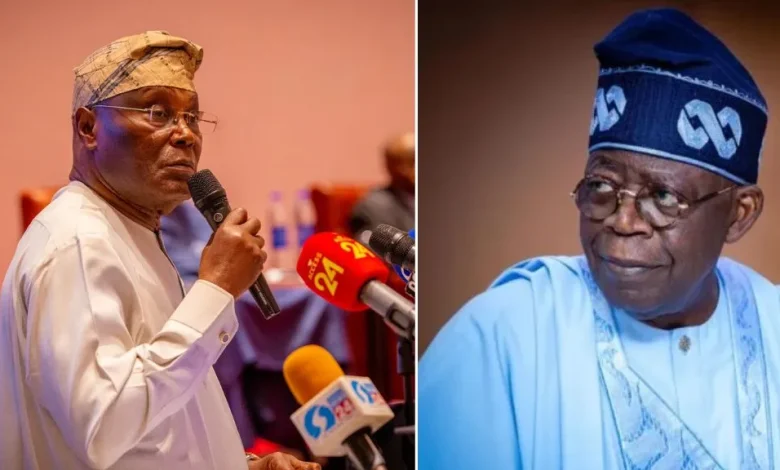
Former Vice President Atiku Abubakar has said that President Bola Tinubu’s policy unifying foreign exchange rates was hurriedly done without proper plans and consultations with stakeholders.
The Peoples Democratic Party (PDP) presidential candidate expressed his discontent in a statement posted on his X account on Sunday morning.
He said; “Tinubu’s new policy FX management policy was hurriedly put together without proper plans and consultations with stakeholders. The government failed to anticipate or downplayed the potential and real negative consequences of its actions.
“The Government did not allow the CBN the independence to design and implement a sound FX Management Policy that would have dealt with such issues as increasing liquidity, curtailing/regulating demand, dealing with FX backlogs and rate convergence.”
Atiku said he knew that the economy of the country was heading for the ditch at the twilights of Muhammadu Buhari’s administration.
He said the policies of the Tinubu administration has continued to cause untold pain and distress on the economy, adding that the government has demonstrated sufficient poverty of ideas to redeem the situation.
“The wrong policies of the Tinubu administration continue to cause untold pain and distress on the economy and the rest of us cannot keep quiet when, clearly, the government has demonstrated sufficient poverty of ideas to redeem the situation. If the government will not hold on to their usual hubris, there are ways that the country can walk out of the current crisis.
“After a careful assessment of the state of our economy at the twilights of the last administration, I knew full well that the economy of the country was heading for the ditch and came up with a number of policy prescriptions that would rescue the country from getting into the mess that we are currently in.”
Atiku listed the ideas he suggested which he said with rescue the country from current economic mess.
“I had signed on to a commitment to reform the operation of the foreign exchange market. Specifically, there was a commitment to eliminate multiple exchange rate windows. The system only served to enrich opportunists, rent-seekers, middlemen, arbitrageurs, and fraudsters.
“A fixed exchange rate system would be out of the question. First, it would not be in line with our philosophy of running an open, private sector friendly economy. Secondly, operating a successful fixed-exchange rate system would require sufficient FX reserves to defend the domestic currency at all times. But as is well known, Nigeria’s major challenge is the persistent FX illiquidity occasioned by limited foreign exchange inflows to the country. Without sufficient FX reserves, confidence in the Nigerian economy will remain low, and Naira will remain under pressure. The economy will have no firepower to support its currency. Besides, a fixed-exchange rate system is akin to running a subsidy regime!
“On the other hand, given Nigeria’s underlying economic conditions, adopting a floating exchange rate system would be an overkill. We would have encouraged the Central Bank of Nigeria to adopt a gradualist approach to FX management. A managed-floating system would have been a preferred option. In simple terms, in such a system, the Naira may fluctuate daily, but the CBN will step in to control and stabilize its value. Such control will be exercised judiciously and responsibly, especially to curve speculative activities.
“Why control, you may ask. Nigeria has insufficient, unstable, and precarious foreign reserves to support a free-floating rate regime. Nigeria’s reserves did not have enough foreign exchange that can be sold freely at fair market prices during crises. (ii). Nigeria is not earning enough US$ from its sales of crude oil because its production of oil has been declining. And, (iii). Nigeria is not attracting foreign investment in appreciable quantities.
“These are enough reasons for Nigeria to seek to have a greater control of the market, at least in the short to medium term when convergence is expected to be achieved.”
Atiku said that he believes that “if and when the government is ready to open itself to sound counsels, as well as control internal bleedings occasioned by corruption and poorly negotiated foreign loans, the Nigerian economy would begin to find a footing again.”
Meanwhile, amid the hardship confronting Nigeria, the Peoples Democratic Party, PDP, youth wing on Saturday urged President Bola Tinubu to seek the guidance of former Presidents Olusegun Obasanjo and Goodluck Jonathan on how to move Nigeria forward.
The youth wing said Nigeria needs a leader who can stir the country towards economic recovery because Tinubu has failed.
A statement signed by Usman Okai Austin, National Coordinator of PDP Youths Frontier, said former President Muhammadu Buhari spent eight years in office blaming Jonathan and the PDP, adding that “today, Tinubu and his team are following the same pattern, blaming the APC government under Buhari.”
According to Okai: “We require leaders capable of addressing the nation’s current challenges and steering us towards economic recovery and security solutions.
“President Tinubu should seek guidance from experienced leaders like Jonathan and Obasanjo to move the country forward.”
He emphasized the importance of setting aside differences within the All Progressives Congress, APC, to focus on the well-being of Nigerians.
Okai noted that Tinubu’s role in Lagos State’s development is overstated because it benefited from its strategic location and previous status as the Federal Capital Territory before being relocated to Abuja by Ibrahim Babagida.
He also criticized the APC for relying on propaganda and highlighted the failure of the president’s economic policies to address modern challenges facing the country.
He added, “The confusion within the party leadership demonstrates a lack of understanding of Nigeria’s complexities. The president’s confusion reflects the party’s trend of blaming others.
“Nigerians are struggling with economic hardships, leading to dropouts from schools and soaring prices of goods and services, resulting in the depreciation of the Naira.
“In the midst of economic and insecurity crises, the administration appears confused.
“Tinubu, considered the best within the APC, has failed similarly to Buhari in economic management. It’s time for him to take responsibility for his administration’s failures instead of resorting to blame games. Nigerians are suffering, and it’s evident that the APC is not the better option for the country.”

